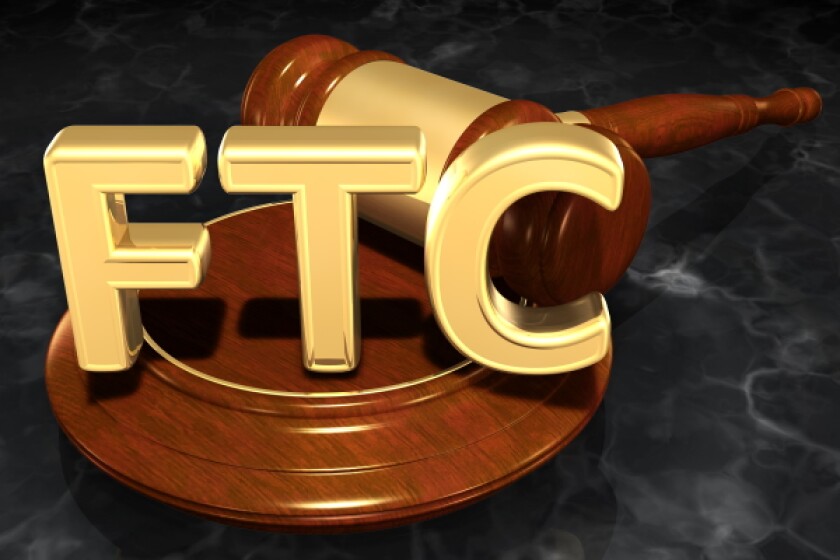Pharma counsel watch for US congressional election outcome
Populist legislators from both the right and left wings of the political spectrum have targeted patents in the past as an easy way to address rising drug costs in the US.
Other Managing IP stories we published this week include:
Opinion: sensitivity crucial as Australia seeks to resolve Aboriginal copyright row
Virtual work could curtail convenience in district courts
Peru Supreme Court judge: begin IP education at school
SMEs must consider IP pros and cons to maximise company value
Eco-friendly focus puts pressure on IP strategies to adapt
USPTO driven to drop rules package and get trial denial input
In-house counsel break down best budget-cut tips for patents
Ninth Circuit rejects FTC appeal for en banc review
Judges Johnnie Rawlinson, Consuelo Callahan and Stephen Murphy voted to deny the petition for an en banc rehearing. No other Ninth Circuit judge requested a vote on the issue.
The FTC filed a petition with the Ninth Circuit requesting an en banc rehearing of its suit on September 25, in response to the appellate court’s decision in August that Qualcomm’s model for standard essential patent (SEP) licensing, including its “no licence, no chips” policy, was competitive.
In a statement, Qualcomm general counsel Don Rosenberg said: “The fact that not one judge on the Ninth Circuit thought it necessary to consider the merits of the FTC’s petition or to even ask for a response from Qualcomm validates the strength and clarity of the panel’s thorough analysis and conclusions.”
The FTC has yet to comment on the court’s rejection, including on whether it will appeal the decision to the Supreme Court.
This latest decision from the Ninth Circuit will serve as a blow to those SEP stakeholders that are opposed to Qualcomm’s licensing model, including its insistence on licensing only to end-product manufacturers, and a boon to those that use similar models.
UKIPO unveils new Brexit guidance
The document sets out that UK trademark attorneys will be unable to represent clients on new applications or new proceedings at the EUIPO from January 1.
Trademark owners will therefore need to appoint a European Economic Area attorney to represent them on new applications and proceedings before the EUIPO. UK legal representatives can continue to represent their clients at the EUIPO in cases that are ongoing at the end of the transition period.
The UKIPO also said it was considering making changes to the rules on correspondence addresses, known as address for service (AFS), at the end of the transition period so that only UK or Channel Island AFSs would be accepted for new applications and new requests to start contentious proceedings.
The office reaffirmed that comparable EU trademarks and designs will be created in the UK after the transition period.
The document also covers changes to unregistered designs, patents and supplementary protection certificates, among other things, after Brexit.
Managing IP Europe reporter Max Walters wrote last week that London Fashion Week was at risk and designers were in limbo after the EU and the UK failed to agree reciprocal protection for unregistered Community designs.
Job notice: UK Supreme Court seeks new justice
The Supreme Court said it was looking to fill a pending vacancy that would be created after Lady Black retired from her position on January 10 2021.
In a press release, the court noted that the selection commission would welcome applications from the widest range of applicants eligible, and encouraged applications from those who would increase the diversity of the court.
On behalf of its readers, this publication suggests that candidates with a solid IP background also apply. The court already has one IP specialist, Lord Kitchin, whom we interviewed last year.
More information on this job notice can be found on the UK Supreme Court website.
Daimler can’t catch a break in Germany as Conversant wins SEP dispute
The 21st chamber of the German court granted Conversant an injunction against Daimler over European patent 2934050, which is for an “apparatus and method for providing a connection”. It is used in connectivity modules in certain cars and is considered essential for the LTE standard.
The security deposit for enforcing the ruling is €5 million ($5.8 million), a slightly smaller amount than the court asked Sharp to pay for its injunction against Daimler – €5.5 million ($6.5 million) – and a much smaller number than the €7 billion ($8.31 billion) the Mannheim Regional Court wanted from Nokia.
Daimler has since announced its intention to appeal against the ruling, stating: “Daimler continues to hold the view that a company cannot be prohibited from using standard essential patents if its suppliers are prepared to pay for a corresponding licence.
“We do not anticipate that this will lead to a stop in production and delivery.”
Daimler has already been defeated in cases brought by Nokia and Sharp for SEP infringement at the Munich Regional Court and the Mannheim Regional Court respectively.











